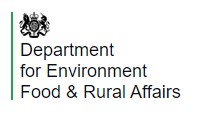Benefits of Technology in Waste Management Services
Reduced Waste Generation
Technology has helped to reduce waste generation by encouraging recycling and reuse of materials. Smart waste bins with sensors can track and monitor the level of waste and send alerts when they need to be emptied, thereby reducing overfilled bins that lead to litter and pollution.
Improved Efficiency
The use of technology has improved the efficiency of waste management services by streamlining waste collection, transportation, and disposal. Automated waste collection systems have been introduced, making it easier to collect waste from multiple locations, sort it, and transport it to the appropriate facility for disposal or recycling.
Safer Waste Handling
Technology has made waste handling safer for workers by reducing their exposure to hazardous waste. Robotics and automation have been introduced in waste sorting facilities, minimizing the need for manual handling of waste.
Reduced Carbon Footprint
Technology has helped to reduce the carbon footprint of waste management services by reducing the number of trips required for waste collection and transportation. Smart waste management systems can optimize the routes taken by waste collection vehicles, reducing fuel consumption and emissions.
Enhanced Data Collection and Analysis
Technology has enabled waste management services to collect and analyse data on waste generation, collection, and disposal. This data can be used to identify areas where waste reduction efforts are most needed, and to track progress towards waste reduction targets.
The Future of Technology in Waste Management Services
The role of technology in waste management services is set to increase in the future. Advancements in artificial intelligence and machine learning will enable waste management services to further automate waste collection and sorting, reducing the need for manual labor. The use of blockchain technology is also being explored as a way to track waste materials from generation to disposal, ensuring that waste is being managed safely and responsibly.
Conclusion
Technology has played a crucial role in improving waste management practices, making them more efficient, safer, and environmentally friendly. From reducing waste generation to improving data collection and analysis, technology has provided numerous benefits to waste management services. As technology continues to advance, the future of waste management services looks bright, with more opportunities to reduce waste, increase efficiency, and protect the environment.

Hazardous waste disposal, including animal by-products is a specialist field, in which UKFMC possesses a wealth of knowledge and experience, consequently we are fully compliant with all relevant legislation; in addition we can offer support and advice on completing all necessary documents and paperwork relating to the transport and disposal of your waste.
References:
- “The Benefits of Smart Waste Management,” Enevo.com, https://www.enevo.com/solutions/smart-waste-management/
- “Automated Waste Collection Systems,” Waste360.com, https://www.waste360.com/collection-and-transfer/automated-waste-collection-systems-make-their-mark
- “Advancements in Waste Management Technology,” B2Blogger.com, https://www.b2bbloggers.com/blog/advancements-in-waste-management-technology/
- “Blockchain Technology in Waste Management,” Waste360.com, https://www.waste360.com/technology/blockchain-technology-waste-management
- “The Role of Technology in Waste Management,” Resource.co, https://resource.co/article/role-technology-waste-management-12706
This information is licensed under the Open Government Licence v3.0. except where otherwise stated.







